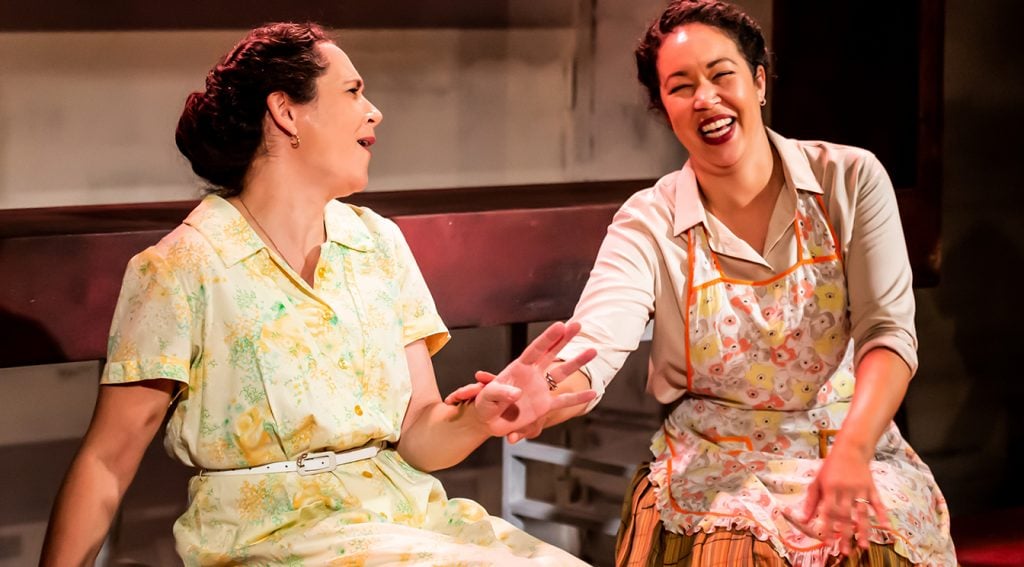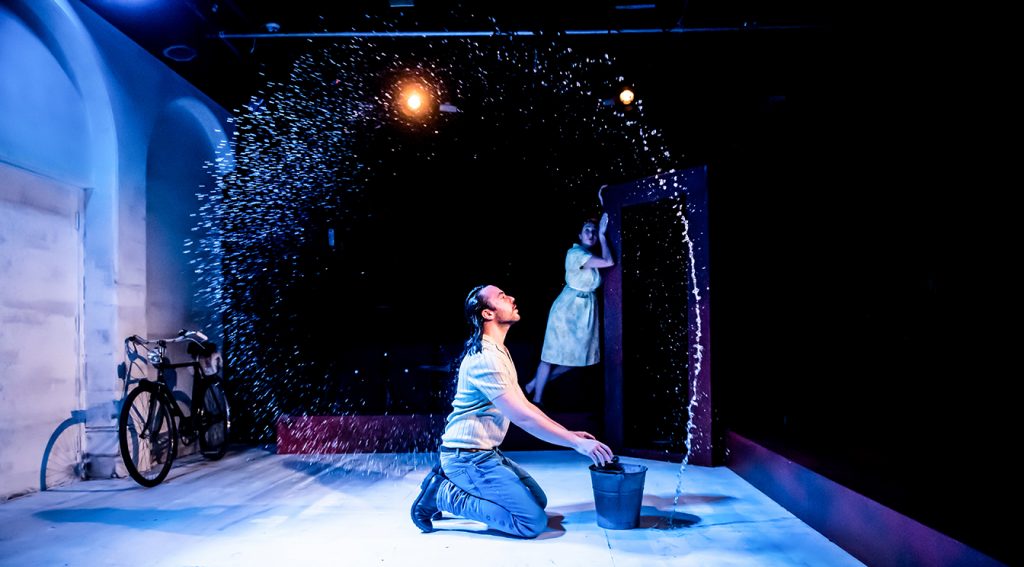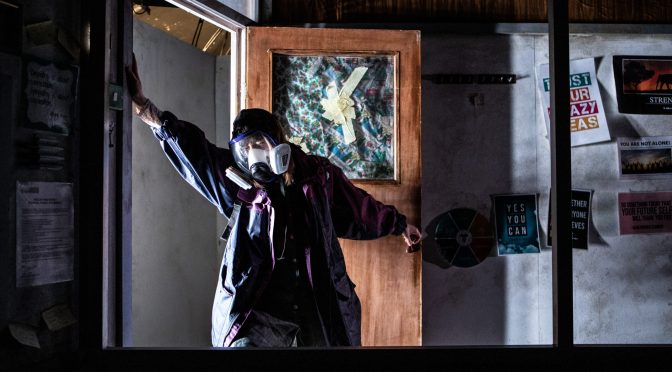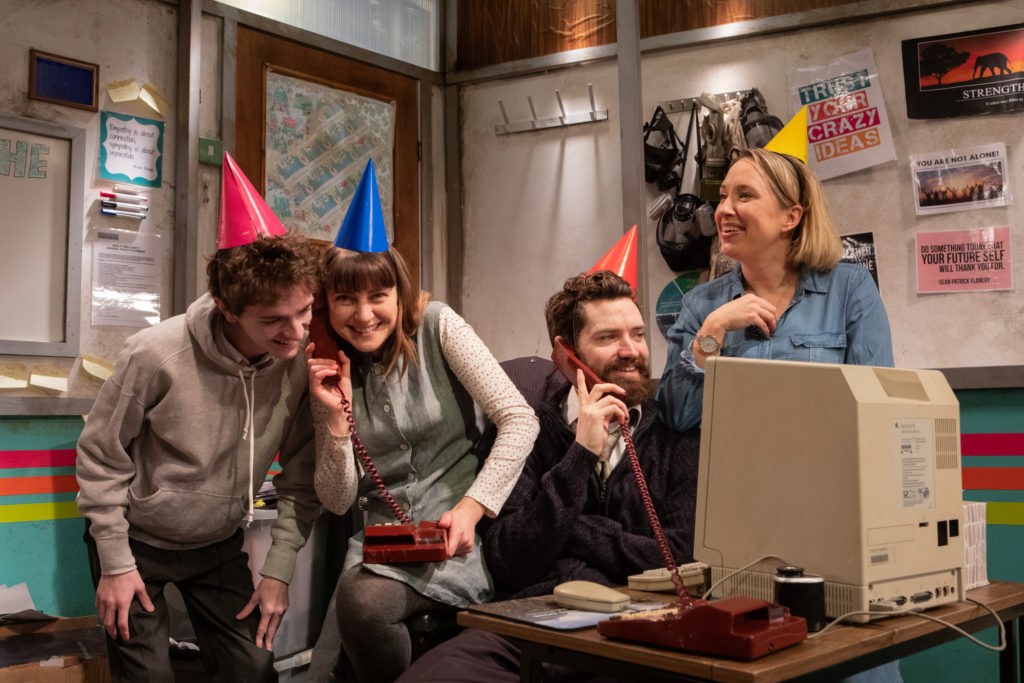Peter Gill’s exceptional play isn’t easy. But, with the aid of this excellent revival from Both Barrels Theatre, it is an experience worth every effort.
Even at its simplest Small Change is a play about memory as much as about the particular memories of a young man called Gerard. His life story shows us working-class Cardiff from the 1950s and 1970s that is interesting enough. But it is the telling of the tale that makes mind-blowing theatre.
Gill’s dense, poetic writing is beautiful, if demanding. This is a long play, but at times I wanted it to pause to appreciate the language more. As Gerard, Andy Rush’s delivery of the script – verse, really – is a marvel. The linguistic acrobatics are matched by a fantastic physicality to the whole production.
Gill’s subject is memory in general
As well as Gerard, we have his mother, his neighbour, her son Vincent, and their memories, too. Gill’s detail is so great – and the performances so good –that you might argue that the play is about any one of them.

Certainly, Gerard’s relationship with his mother is extraordinary and leads to a magnificent performance from Sioned Jones. For all her frustrations about her “swine of a kid”, their closeness shines through. From supportive to claustrophobic, the changing dynamics are riveting.
The next-door neighbour’s mental health problems are explored by Gill with sensitivity and depth: qualities reflected in the performance from Tameka Mortimer. Small Change‘s angle on the lives of working-class women is authentic and inspiring.

Meanwhile Gerard’s best friend Vincent is as fully formed a character you could wish for. Toby Gordon’s wonderful depiction brings out a fascinating intelligence and independence.
So maybe I’ve got it wrong? Small Change is about so much more that Gerard’s soul-searching reminiscences. Because the memories recounted are brilliantly interwoven and seen from many angles. The life choices and trauma of each character are revealed from individual perspectives.
The scraps of memories, conversations, observations (from different times of life) flow with dizzying speed. Wrongs and sufferings are circular as the give and take of personal relationships creates a web that’s powerful, but let’s be frank – hard to follow. Gerard is the vector of the “hard slog” of memory: working out the past and how it impacts the future isn’t easy for him or the audience.
“The hard slog”
Director George Richmond-Scott revels in the play’s complexity and his work is, as a result, bold and brave. It’s easy to imagine how static Small Change could be (it’s one of those plays that you want to read). But Richmond-Scott injects an energy into the production that matches the verse. Rush is eye-catching, but I became obsessed with the way Jones used her cardigan to show her character ageing. Wonderful stuff.
There’s guidance about what is going from Lex Kosanke’s excellent sound design. But it is the sculptural set from Liam Bunster that proves a revelation. The rust-coloured benches and a box look as if Donald Judd’s artwork has found a practical application. The set becomes a beach and a playground as well as a door or a window. Thanks to movement director Rachel Wise, it’s creatively negotiated around, jumped and balanced on, with images vivid enough to match the script. And, with this script, you can’t praise higher than that.
Until 2 October 2021
Photos by Lidia Crisafulli



